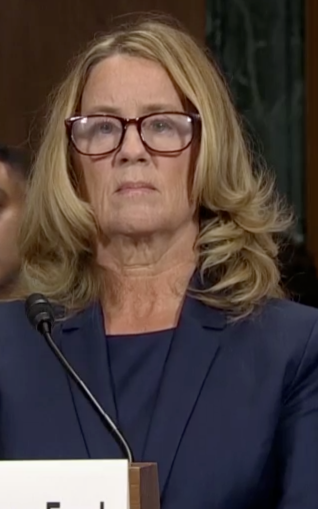“The Genius of Connecticut,’’ by sculptor Randolph Rogers, a plaster version of the bronze statue (destroyed) originally mounted on top of the dome of the Connecticut Capitol, is exhibited on the main floor.
Soviet poster c. 1925, warning against midwives performing abortions. Title translation: "Miscarriages induced by either grandma or self-taught midwives not only maim the woman, they also often lead to death."
MANCHESTER, Conn.
Where is it written that the crazier Alabama, Texas, or Idaho get, the crazier Connecticut must get too?
But that seems to be the premise of the leftist faction of the Democratic majority in the General Assembly when it comes to abortion.
Alabama lately became famous for the Bible-thumping decision of its Supreme Court that, as a matter of law, frozen human embryos must be considered children. Freed by the U.S. Supreme Court's reversal two years ago of its 1973 decision in Roe v. Wade, Alabama and other right-wing states have virtually outlawed abortion, many of them with the support of a majority of their residents.
But Connecticut law on abortion is unaffected. Connecticut maintains the policy articulated by Roe: that abortion is legal prior to the viability of the fetus and that state government may restrict abortion afterward. As a practical matter, Connecticut also allows the abortion of viable fetuses if a pregnant woman and her doctor claim the law's mental-health exception for late-term abortions. No one challenges such claims.
That's still not enough for the many abortion fanatics among Connecticut's Democratic state legislators. They reportedly are about to propose an amendment to the state Constitution establishing a right to abortion at all stages of gestation. They already have proposed legislation to force medical providers to provide abortion services even if doing so violates their consciences or religious beliefs. Such a law would force the most sincere providers among them to leave the state if they would continue their careers.
The nominal rationale for the constitutional amendment is that someday public opinion in Connecticut may turn in favor of banning abortion. Nobody really believes that but such an assertion builds the political hysteria desired by the all-abortion, all-the-time movement.
The nominal rationale for the legislation forcing medical providers to violate their consciences or religious beliefs is that some rural areas of the state are an hour or so distant from abortion clinics -- as if some rural areas of the state aren't also distant from supermarkets, dentists, restaurants, bars, police stations, and all sorts of conveniences, and as if people don't account for this when choosing where to live.
The real rationale for the legislation is to stamp out contrary consciences and religious beliefs. Ironically, the people doing this stamping out tend to be the same ones who prattle about the benefits of "diversity." That is, it's great if people look different as long as everyone thinks and votes the same way.
If you believe that there is something worth respecting in a viable fetus -- an unborn child capable of living outside the mother's womb -- get lost. There can be no “diversity” for you.
xxx
STOP HIDING CRIME: Figuring out what to do about former criminal offenders is a challenge.
State law already holds that part of the solution is to conceal many convictions. Now the General Assembly is considering whether to prohibit landlords from considering convictions more than three years old when evaluating potential tenants.
Criminal convictions follow people around and can burden them for a long time. But then why shouldn't they? Why shouldn't former offenders have to do more to prove themselves than people who have never caused trouble? Why should prospective landlords, employers, and romantic partners be obstructed in protecting themselves? Why should landlords and employers be obstructed in protecting their tenants and employees?
While the labor shortage may be reducing the reluctance of employers to hire former offenders, the housing shortage is worsening their plight. But the employment and housing problems faced by former offenders actually arise from something bigger than their criminal records: their lack of education and job skills, which often correlates with crime.
Concealing criminal records helps former offenders only by increasing risk to everyone else. So the only fair solution is to improve education and facilitate housing construction. Since that's not likely to happen in Connecticut, state government should operate more halfway houses for former offenders as they rebuild their lives.
Chris Powell has written about Connecticut government and politics for many years(CPowell@cox.net).






























